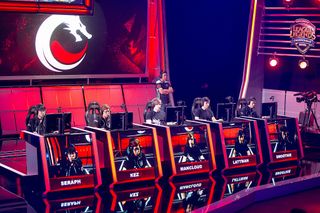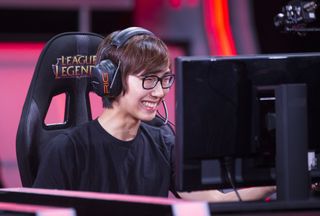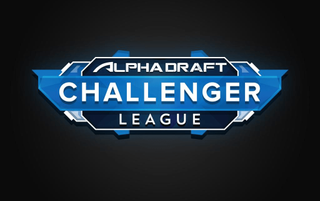Talent Farming in LoL's Western Wastelands

The Korean exodus has its detractors. Whether by nationalism or more general regional pride, the ubiquity and dominance of Korean players in literally every premier circuit has troubled especially those prone to chanting "USA! USA!" There's no denying that they're deadly effective, of course—Jae-hun "Fenix" Kim's solo quadrakill against Counter Logic Gaming sent the former North American leaders into a multiweek spiral downward. Over in Europe, Fnatic's Huni and Reignover Show (Seung-hoon Heo and Yeu-jin Kim respectively) draws in some of the best ratings the region's seen in its history.
There's also no denying that they deserve the bounties they reap. Even my pitiable little region here in Taiwan, with our severe lack of endemic sponsorships and struggles under China's titanic LPL shadow, can nonetheless attract Korean talents. That, honestly, suggests something fishy going on up north in the Korean peninsula. If esports is the meritocracy we'd like to pretend it to be, then certainly these young and mechanically impressive Korean talents should be reaping the material rewards they can't seem to find back home.
But there's also no denying that the very presence of Huni, Fenix, and all of these others at the top of the western circuits is an unspoken criticism of the general quality of western play. While there's more mechanical equality between individual players than in previous years (Soren "Bjergsen" Bjerg is still the absolute best mid laner in the NA LCS, Koreans be damned), the top of the North American scene in particular is starting to get crowded out. The import players are very much the lynchpins to any one team's cohesion.
TDK's torment

Team Dragon Knights, they of the perpetual visa problems, was a particularly clear example of this. Geon-woo "Ninja" Noh and Jin-hyun "Emperor" Kim's emigration issues forced their new NA LCS team to sub in a wide range of alternatives, ranging from James Lattman to Aaron "Bischu" Kim, and subsequently crashed and burned out of the gates. Their 0-9 start to the summer split was reminiscent of Copenhagen Wolves circa 2013—Bjergsen's professional debut. And much like Bjergsen's debut, Ninja and Emperor's much belated presence is the only thing keeping the team in contention.
But why was this particularly true for TDK? Bischu, Lattman and everybody else they've tried are known players in the North American scene—it's not as if they've taken fresh rookies out of solo queue and told them to try and not feed double digits to TSM. Bischu, in particular, has been in the competitive scene in one form or another since June 2012. While a team with subs certainly aren't expected to take over the circuit's top rankers, their nine-game defeat streak was disastrous even against the likes of fellow rookie teams like Enemy or Team 8. Even Cloud 9, whose season's been likened to a dumpster fire, can at least pull it together long enough to batter TDK around.
Why is it that North American mid-Challenger players can be so easily made to seem like bronze scrubs when directly compared to Korean imports? Part of it can be blamed on North American solo queue, perhaps, where players have long complained of a lack of seriousness compared to its Chinese and Korean equivalents. But it's shortsighted to just leave it as a cultural difference without deciphering why that difference exists.
The fact is, even before the mass exodus, Chinese and Korean Challenger players had more to look forward to anyhow. The seriousness of ladder play is commensurate with the expectations of its top-level players—Korean Challengers, in particular, know that they're actively being scouted by organizations across the world. Same with the top level players of China's Ionia server, though focused more inward towards the region's billionaire sponsors.
PC Gamer Newsletter
Sign up to get the best content of the week, and great gaming deals, as picked by the editors.
If teams and organizations want to know why the quality of domestic players in North America and Europe are so comparatively poor, part of the blame has to go to themselves for not fostering a similar advancement program and environment back home. They default towards two courses of action when faced with roster issues: either to protect the players they currently have in the name of team cohesion (and to not make things worse in the short term), or to recruit foreign players to bandaid over their weaknesses.
Neither, I note, are inherently wrong. The problem is the almost exclusive dependency on just these two options. While the Challenger Series has done a lot over the last year to make the competitive scene somewhat more friendly to the semi-pro level, it's largely failed to bridge the resource and investment gap between domestic western players and their foreign competition, hindering the former's development. The lack of "true" substitute players or coaching and analytical investments for academy teams leaves Korean solo queue the better bet for talent hunting.
Building a battleground

But the problem isn't entirely on the team organizations themselves. It's at least partially the fault of local tournament organizers as well—and maybe on the LCS structure itself.
The LoL Pro League teams in China have an infamously rigorous competitive schedule this year, playing a whopping 44 games and then some over the course of a split. But on top of that's an entire constellation of secondary and third party tournaments too. There's also the LSPL—commonly and mistakenly considered the equivalent of the western Challenger Series circuit, except that the LSPL somehow fosters teams and talent that can legitimately challenge the likes of LGD and Edward Gaming.
If the western team organizations are guilty of not fostering a strong solo queue scene by neglecting the training of domestic candidates, western tournament organizers are guilty of not incubating the premade scene. The NA and EUCS are pale shadows of the competitive rigor of the LSPL, whose tournament schedule and structure mirrors its more internationally renown counterpart. The third party support that gives Challenger-tier teams both a platform and financial incentive to play top-tier League of Legends is largely absent outside of China.
Here, however, there are promising developments. Fantasy platforms like Alphadraft don't just provide greater liquidity and audience incentives to pay attention to "minor" leagues—they're also actively fostering their growth by hosting tournaments to showcase teams (and give people something to gamble over).
But my concerns here are more about the risks imposed by the platforms initiating such tournaments. We've seen what external performance incentives have done to the CS:GO scene—the more money at stake, the more likely that some greedhead's going to try and finagle a deal between the teams to affect the match outcome. This absolutely must be engineered against in the long term—the central cause of Starcraft: Brood War's decline was the image hit caused by Jae-Yoon "Savi0r" Ma's ignoble fall from grace as the central figure in the South Korean matchfixing scandal back in 2010.
Fantasy draft platforms are a bit of a Faustian bargain in this instance, as they bring everything a local scene could want to incentivize and fund its development, except for protection against corruption by externalities and greed. Only strong and centralized oversight can mitigate this problem—but I'm not sure if Riot's the right party to do so. Their recent actions against Renegades co-owner Chris Badawi demonstrated a clear bias favoring LCS teams over Challenger-tier organizations, or basically teams under their control and teams outside. While Badawi's actions are highly questionable, it's nonetheless extremely obvious that poaching and tampering protections overwhelmingly favors the established LCS organizations—at direct and detrimental cost to Challengers like the Renegades. Challenger teams have no such security against LCS teams that want to take advantage of the training and investments they've put into their players, and there are no indication that Riot's going to be implementing equivalent failsafes on their behalf.
Instead, maybe it's time that Unikrn, Alphadraft and Vulcun start talking amongst themselves about establishing a commissioner's office. If Riot won't offer the same level of protection to third-party organizations and unaffiliated teams, then it's up to said organizations and teams to protect themselves—and they can only do so by collective action. Various reasons and circumstances have, according to Unikrn VP Stephen "Snoopeh" Ellis, prevented the formation of a player's union among League of Legends teams and players. But an organized third party circuit is its own political entity, especially with the funding and backing that the fantasy draft companies have already established in just their inaugural year.
The Challenger-level competitors and teams determine a region's long-term viability. It is in everybody's best interest to foster its rapid and cultivated growth. There is no escaping the conclusion that the only feasible way to do so is to establish a strong third-party circuit—and this year, we have the tools and investments needed to do so. Time to see about founding a National MOBA League.
Most Popular

